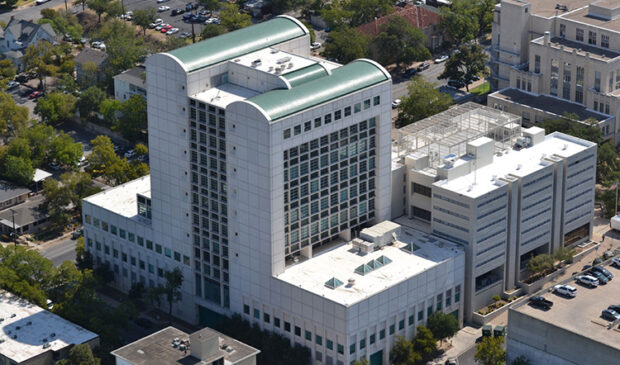In surprise move, Blazey releases part of Christopher Taylor’s secret personnel file to the defense team
Tuesday, May 23, 2023 by
Nina Hernandez The district court judge overseeing the trial of the Austin police officer charged with murder in the fatal shooting of Mike Ramos has ruled that parts of the officer’s secret personnel file will be handed over to the defense.
Last week, Travis County District Court Judge Dayna Blazey denied the city of Austin’s motion to partially quash a subpoena from the Travis County District Attorney’s Office requesting Austin police officer Christopher Taylor’s personnel file. City Attorney Anne Morgan argued the city should retain custody of the secret portion of those documents, which is known as the “G File.”
Blazey reviewed the documents and ruled in a motion filed on May 22. However, instead of delivering the “G File” to the state as requested, Blazey ruled the defense is entitled to review part of those records.
“After reviewing the records in camera, the Court has determined that a portion of the records contain information that may be favorable to the Defense under Brady v. Maryland or the Texas Code of Criminal Procedure 39.14(h),” Blazey wrote. “The Austin Police Department Custodian of Records is therefore ORDERED to produce the records identified by the Court to counsel for the Defense only.”
In her January motion to quash, Morgan cited a 3rd Court of Appeals ruling that stated the files could not “be obtained directly by the State or the defense under a protective order or through discovery allowed by the Michael Morton Act.”
Blazey’s order states that the records may only be used by Taylor’s defense attorneys in connection with the Ramos case and they may not be disclosed “to any third-party without prior authorization of the Court.” The defense is ordered to destroy the records – or return them to APD – at the end of the trial.
Access to these records has been the subject of public debate in Austin. The Austin Police Oversight Act, which was overwhelmingly approved by voters in an election earlier this month, prohibits the department from maintaining a personnel file for officers that is not subject to the public information act.
Taylor’s trial began Monday morning with jury selection. After a lunch break, Blazey reconvened to explain that the court had been mistakenly locked during the morning session, “thus not allowing access to members of the public.” Members of the public told they could not enter the courtroom included Austin Chronicle reporter Austin Sanders. That is in conflict with the Sixth Amendment to the U.S. Constitution, which provides the right to a public trial.
Therefore, Blazey announced all the potential jurors would be released. “The courtroom should be accessible to the general public. That was not the case today and to ensure all sides receive a fair trial, we are going to release everyone from jury duty,” Blazey said.
The Austin Monitor’s work is made possible by donations from the community. Though our reporting covers donors from time to time, we are careful to keep business and editorial efforts separate while maintaining transparency. A complete list of donors is available here, and our code of ethics is explained here. This story has been changed since publication to clarify the effect of the Austin Police Oversight Act.
You're a community leader
And we’re honored you look to us for serious, in-depth news. You know a strong community needs local and dedicated watchdog reporting. We’re here for you and that won’t change. Now will you take the powerful next step and support our nonprofit news organization?










